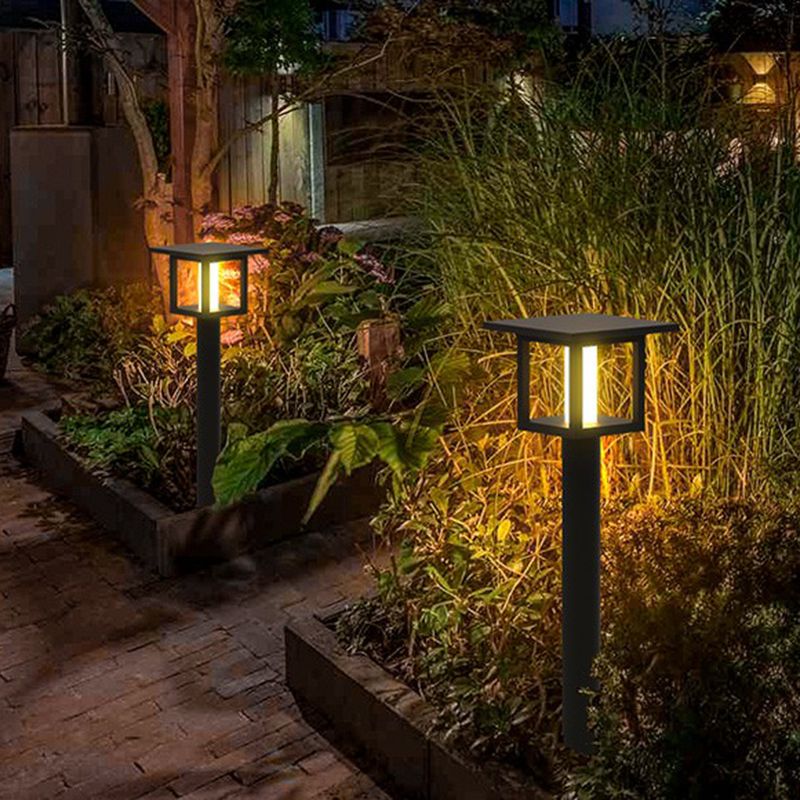Transform Your Outdoors: Discover the Secrets of Bollard Lighting!
As the sun sets, transforming outdoor spaces into inviting havens becomes a priority for homeowners and businesses alike. Bollard outdoor lighting is emerging as a popular solution, blending functionality with aesthetic appeal. These stylish fixtures not only illuminate pathways and gardens but also enhance the overall ambiance of the surroundings. In this article, we will delve into the world of bollard lighting, exploring its various uses, unique features, and practical installation methods. Whether you're looking to improve safety in your backyard or create a welcoming atmosphere for your guests, understanding bollard lighting can help you make informed choices for your outdoor spaces.

Understanding Bollard Outdoor Lighting
Bollard outdoor lighting refers to short, sturdy posts designed to provide illumination while marking pathways or creating distinct areas within a landscape. Typically between 3 to 4 feet in height, they differ from traditional outdoor lights in their design and placement. Unlike floodlights or wall-mounted fixtures, bollard lights are often installed at ground level and are strategically positioned to guide visitors safely through outdoor environments. Their versatility is one of their standout features; whether used in residential gardens, commercial landscapes, or public parks, bollards can complement various styles and themes. I remember a friend who installed them along her garden pathway, creating a stunning visual effect that not only improved safety but also added a touch of elegance to her outdoor area.
Uses of Bollard Lighting
Bollard lighting serves multiple purposes across different applications. One of the most common uses is along pathways, where they provide safe navigation after dark. They can also be placed in gardens to highlight beautiful plants or architectural features, creating an enchanting atmosphere. In parks, bollard lights enhance safety by illuminating walking trails, ensuring that visitors feel secure during evening strolls. Additionally, commercial spaces, such as shopping malls or restaurants, often utilize bollards to guide patrons and create a welcoming environment. The balance between safety and aesthetic enhancement makes bollard lighting an essential element for both public and private outdoor spaces. A friend of mine who owns a café installed them around her patio, which not only lit up the space but also attracted more customers, drawn in by the inviting glow.
Features of Bollard Lighting
Bollard lights come with an array of features that make them ideal for outdoor use. Their durability is paramount; constructed from materials such as aluminum, stainless steel, or plastic, they are designed to withstand harsh weather conditions. Many bollard lights are energy-efficient, with LED options available that consume less power while providing better illumination. The styles vary significantly, from sleek modern designs to more traditional looks, allowing homeowners to choose options that align with their landscape aesthetics. Illumination options are equally versatile, with some bollards offering adjustable brightness or color temperature settings to create the desired ambiance. I’ve seen many beautiful installations where different styles of bollard lights work harmoniously together, showcasing creativity while maintaining functionality.
Installation Methods for Bollard Lighting
Installing bollard lighting can be a straightforward process if done correctly. Start by preparing the site: choose locations that will effectively illuminate pathways or areas of interest, ensuring they are spaced evenly. Next, consider wiring; if your bollard lights are electrically powered, you will need to run underground wiring from your power source to each light. It’s crucial to follow local electrical codes and safety precautions during this stage. Once the wiring is in place, you can proceed with mounting the lights. This typically involves securing the bollards to a concrete base or directly into the ground, depending on the model. Tools required may include a shovel, drill, and level to ensure proper alignment. Always double-check your installation for stability and safety before finalizing your project. My neighbor took on this project recently and found that with a little planning and the right tools, the installation went smoothly, adding an inviting glow to his front yard.
Enhancing Outdoor Spaces with Bollard Lighting
Bollard outdoor lighting is a fantastic way to enhance the beauty and safety of your outdoor spaces. With their versatile applications, unique features, and straightforward installation methods, they can transform any environment into a welcoming and functional area. Whether you want to illuminate a garden pathway, enhance a commercial space, or simply enjoy the beauty of your backyard, bollard lighting offers a stylish solution that meets both aesthetic and practical needs. Consider incorporating bollard lights into your outdoor design to enjoy their many benefits and create an enchanting atmosphere for all who visit.






